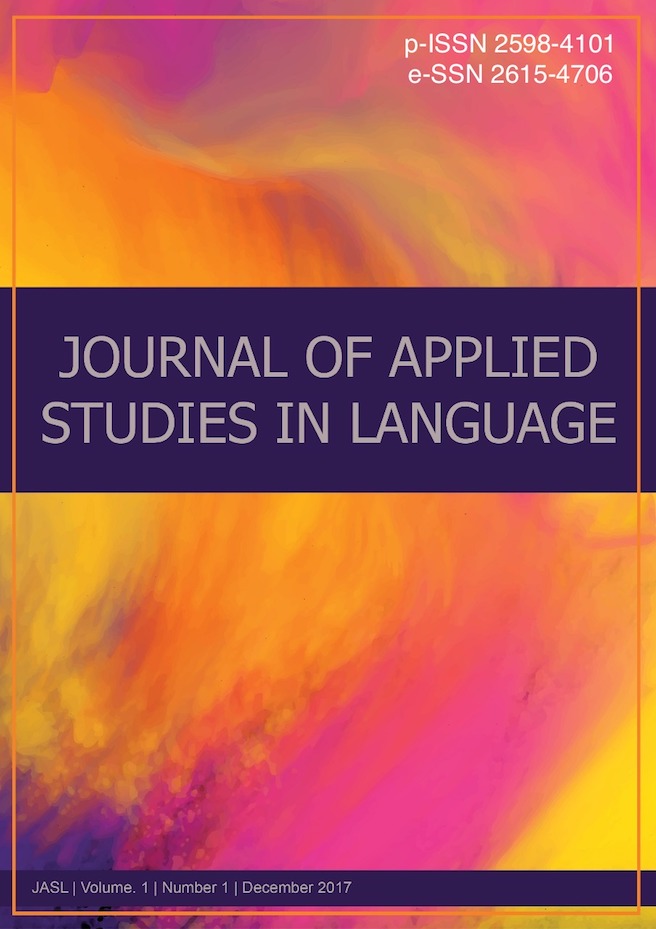Grammatical accuracy of Indonesian-English translation
Abstract
This study aimed at investigating the accuracy of grammatical structures made by EFL students and their perception of factors affecting them to translate Indonesian texts into English grammatically. The subjects of the study were 21 students in an Indonesian-English Translation class at Language and Literature Faculty, Universitas Sains Alqur’an Wonosobo, Indonesia. The data were collected through students’ translation result texts, questionnaires, and interviews. Since the data involve social phenomena the qualitative approach is used to interpret the data. The findings indicate that the major inaccurate grammatical structures made by students are noun phrase structure, passive voice, and usage of tenses. EFL students consider that factors that contribute to helping them translate texts grammatically are lecturers’ grammar class, watching English movies, and frequent translating exercises. With regard to Indonesian-English translation, this study is believed to ensure the teachers to design an appropriate course to serve the students to develop their grammatical performance in translation.










